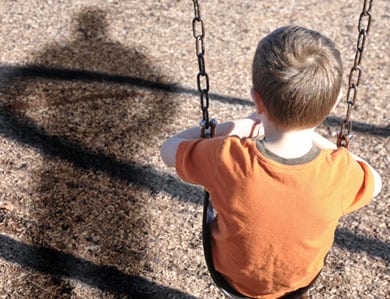 The recent rescue of three young girls who were kidnapped, raped and imprisoned for nearly a decade by Ariel Castro has shocked the nation and left parents fearful for their own children’s safety. You, like many other parents who are following this horrific story, may feel helpless, fearing that there is nothing that you can really do to protect your children. But, there are things that you can do!
The recent rescue of three young girls who were kidnapped, raped and imprisoned for nearly a decade by Ariel Castro has shocked the nation and left parents fearful for their own children’s safety. You, like many other parents who are following this horrific story, may feel helpless, fearing that there is nothing that you can really do to protect your children. But, there are things that you can do!
In fact, we can learn a lot from the emerging details of these three abductions. In each case, the kidnap victim was abducted after accepting a ride from Castro. Furthermore, evidence suggests that Castro was acquainted with at least one of the victims and that he kidnapped all three girls not far from their own homes.
The abductions of these three girls fit the most common abduction scenarios. According to the FBI, abductions often happen less than a mile from the victim’s home and the abductor tricks the victim into going willingly with them. In well over three-quarters of abductions, the victim knows or is acquainted with the perpetrator.
The danger is truly in our own backyards. Our children are far more likely to be kidnapped by an acquaintance than by a stranger. While this is terribly frightening, because we know these patterns and warning signs, we can dramatically reduce our children’s risk of becoming victims.
Here is what you can do:
Monitor
Most abductions are not perpetrated by complete strangers, so monitor anyone who has access to your children. Do not immediately trust neighbors, coaches, babysitters, parents and older siblings of your children’s friends. Take the time to get to know them and let them earn your trust. Even after you feel comfortable with these people, continue to monitor their interactions with your children. Use common sense and do not ignore your intuition.
Regularly check the sex registry for predators living in your neighborhood and along the route that your children walk to school on. Warn your children never to play near homes of known sex-offenders. Always remain vigilant because there are almost certainly sex offenders living nearby who just have not been caught yet.
Supervise
Children are most often abducted from places we assume are safe—parks, the front yard, playgrounds, etc. — so never let your guard down. Always supervise children and never let them use public restrooms alone. Monitor your children’s social media accounts because predators often court teenagers online and then suggest a meet up.
Educate
Children who are educated about potential dangers are safer. Teach even very young children the difference between appropriate and inappropriate touching. Do not scare your children unnecessarily, but do teach them that there are bad people in the world who may hurt them. For example, explain that anything covered by a bathing suit should not be touched by others and describe sex offenders in your neighborhood as bad people who hurt children.
Warn children of the scenarios abductors often use—asking for directions, asking for help finding a lost puppy, or offering treats like ice cream or candy. Give children a very short list of adults they are allowed to go with. Choose a password to use in emergencies when an adult not on that list picks them up.
Empower
Children are rarely abducted from their parent’s arms so empower your children to protect themselves. If they are separated from you, they need to know who they can safely ask for help. For example, the first choice might be a police officer, then a person who works at the store, and as a last resort might be a mother with young children.
Teach your children to fight back. One of the best strategies is for children to learn is to lie on their back and kick if someone tries to grab them. This will make it very difficult for anyone to pick them up. If your child is grabbed in a public place, they need to understand the rules of good behavior do not apply—they should kick, hit, claw and bite. They can kick things off shelves and break things to get attention. They should scream, “This is not my mom/dad!”
Teach your children not to be afraid of an abductor’s threats, gun or knife. Children should not be compliant, because most abductors will run away if a child calls attention to the situation by fighting or screaming.
Have fun, but be safe
Childhood abduction is every parent’s worst nightmare and we must take protecting our children very seriously. However, we still want to make sure our children are able to enjoy the beautiful summer weather—playing with friends, bicycling around the neighborhood and just being kids. But by following these tips your children are sure to have a fun and safe summer.
Keri is a freelance writer. She blogs regularly at keriwilliams.wordpress.com.

Comments